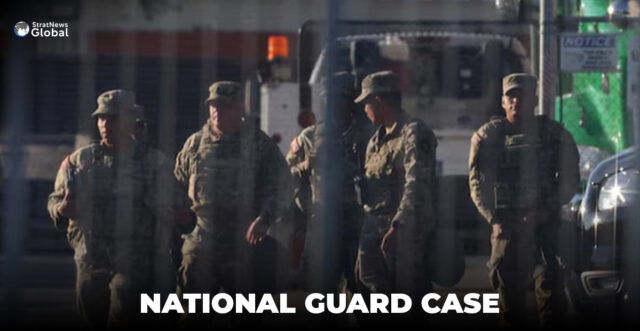The Trump administration has told the United States Supreme Court that deploying National Guard troops to the Chicago area is necessary in part because local police have not adequately responded to what the Justice Department characterises as mob violence by protesters opposing the president’s aggressive immigration enforcement.
Those law enforcement agencies have given the nine justices a starkly different account of protests they called limited in scale, detailing in court filings how they have responded on specific dates and explaining how a unified command they set up to coordinate efforts dealt effectively with the demonstrations.
This is just one of many contrasts in how events on the ground are being portrayed in the case, creating for the justices what may be a dilemma over who to believe as they mull the Justice Department’s October 17 emergency request to allow the deployment. A federal judge has temporarily blocked the move, rejecting the administration’s legal rationale and its version of events. The Supreme Court could act at any time.
Doubt Cast On Federal Claims
The Justice Department relied heavily in its Supreme Court request on two written statements to justify its stated need for the National Guard to protect federal agents and property. The statements by Immigration and Customs Enforcement agency official Russell Hott and Border Patrol official Daniel Parra portray the situation on the ground as dire and dangerous.
The Justice Department cited Hott’s declaration 37 times in its 40-page application to the Supreme Court, and Parra’s 15 times, a Reuters analysis showed.
Chicago-based U.S. District Judge April Perry found the sources of the administration’s facts to be unreliable, a determination an appeals court upheld.
“In addition to demonstrating a potential lack of candour” by Hott and Parra, Perry wrote in her decision, “it also calls into question their ability to accurately assess the facts.”
In the U.S. legal system, trial judges and juries have the primary role in fact-finding, with higher courts generally deferring to those conclusions.
“Here, the district judge carefully detailed the factual record and found it ‘impossible to align’ with the statements in the affidavits submitted by the administration. The judge also raised serious credibility concerns with those statements,” said Brandon Garrett, a Duke University School of Law expert in legal evidence.
Garrett said it would be “all the more problematic for the Supreme Court to engage in fact-finding which is outside of its role as an appellate court.”
University of Chicago constitutional law professor Aziz Huq said it is not surprising for the court to be encountering a major gap between versions of events, given its increasing willingness to settle weighty matters on its so-called emergency docket – as in this case – before the facts of a dispute have been fully determined.
“The Supreme Court has created a situation in which the ordinary process for settling factual disputes no longer exists in these cases,” Huq said.
The Justice Department declined to comment. An ICE spokesperson said that the agency “is not going to comment on court documents and pending litigation.” The Department of Homeland Security and Customs and Border Protection did not respond to requests for comment.
Domestic Deployments
In their legal challenge to Trump’s deployment, the city of Chicago and state of Illinois have said he is using protests that have been limited in size and severity as a pretext to dispatch troops to punish adversaries and stifle dissent. They noted that Trump has talked about sending the military into Democratic-led cities like Chicago for years.
Trump, since June, has deployed troops to various Democratic-led jurisdictions in an extraordinary expansion of the use of the military for domestic purposes. Trump also has sent them to Los Angeles, Memphis and Washington, D.C., and has sought to dispatch them to Portland.
Challenges to those deployments are playing out in other cities. A judge who already has blocked the Portland deployment is set to preside over a trial beginning on Wednesday.
(With inputs from Reuters)





